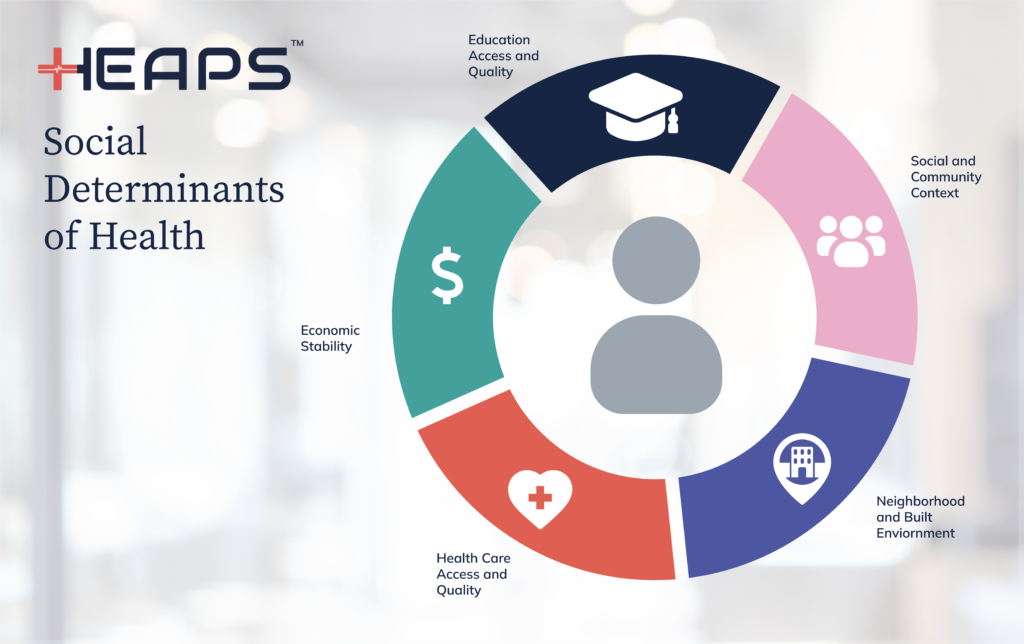At HEAPS, Our clients know that consistent care from the right providers can improve health and retention. But Care/Case Managers are responsible for the entire healthcare journey, which is directly impacted by adherence and social determinants of health.
The latest healthcare reports show a significant association between self-reported health-related social needs and acute care utilization among older adults. Social and structural factors play a critical role in driving disparate health outcomes. For healthcare providers and payers, understanding this connection and managing it alongside general care can dramatically improve healthcare outcomes and reduce avoidable treatments, hospital stays, and overall costs.
One study estimated that, on average, clinical care impacts only 20 percent of county-level variation in health outcomes, while SDOH affects as much as 50 percent of health outcomes. As a company, HEAPS is committed to combining clinical data with social determinants of health. Not only to better outcomes, but also enhance whole person care.
The HEAPS platform is unique in its approach to these challenges and their impact on healthcare. Our platform sources, analyzes, and summarizes complex data into actionable insights. But unlike traditional healthcare options, the platform also integrates personalized social determinants that impact health, adherence, and success rates. This unique approach allows care providers and payers to overcome those previously unidentified barriers and produce better outcomes consistently.
Click here to learn more about the HEAPS platform or schedule a demo.
Click here to read the research, Association Between Self-reported Health-Related Social Needs and Acute Care Utilization Among Older Adults Enrolled in Medicare Advantage.



